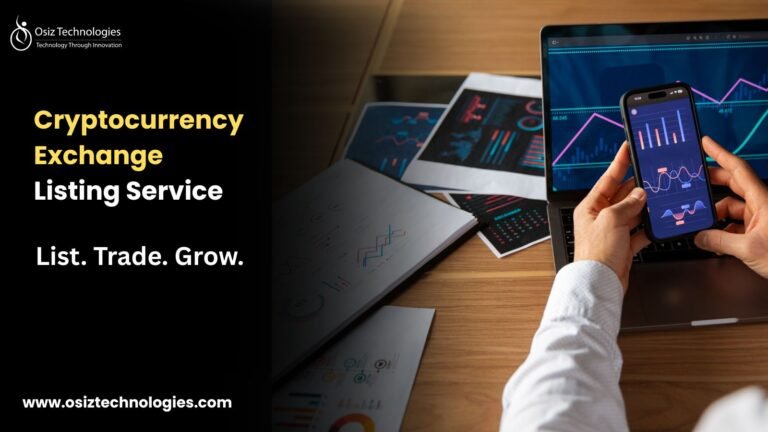In today’s hyper-competitive business environment, human resources play a central role in driving innovation, engagement, and productivity. As organizations scale, managing recruitment, payroll, compliance, and employee experience becomes increasingly complex.
To overcome these challenges, companies are investing in HR software development services — leveraging digital tools and automation to streamline HR operations and make data-driven workforce decisions.
Whether you’re an enterprise with thousands of employees or a fast-growing startup, the right HR software can transform how your organization attracts, manages, and retains talent.
In this article, we’ll explore the top HR software development services businesses need in 2025, their core features, benefits, and how they’re shaping the future of work.
Why HR Software Development Is Essential in 2025
By 2025, HR departments are no longer just administrative hubs — they’re strategic partners influencing productivity, innovation, and company culture.
Custom HR software solutions empower organizations to:
-
Automate manual HR tasks to save time and reduce human error.
-
Centralize all HR data and processes in one secure platform.
-
Gain real-time insights for better decision-making.
-
Deliver a seamless and personalized employee experience.
-
Ensure compliance with labor regulations and data privacy laws.
The shift toward AI-powered, cloud-based, and integrated HR systems means that every forward-thinking business needs to embrace modern HR software development services to stay competitive.
1. Recruitment and Applicant Tracking System (ATS) Development
Streamline Hiring with AI and Automation
Recruitment remains one of the most time-consuming HR functions — but custom-built Applicant Tracking Systems (ATS) are transforming the process.
An ATS automates job postings, resume screening, and candidate communication. It uses AI to match candidates with job descriptions, reducing bias and improving hiring efficiency.
Key Features:
-
Job posting automation
-
Resume parsing and candidate ranking
-
Interview scheduling and communication tools
-
Integration with LinkedIn and job boards
-
Recruitment analytics dashboard
Benefits:
-
Reduces hiring time by up to 50%
-
Improves quality of hires with AI recommendations
-
Enhances collaboration among recruiters and managers
2. Employee Onboarding Software Development
Deliver Exceptional First-Day Experiences
Effective onboarding determines how quickly new hires become productive and engaged. A well-designed onboarding software provides new employees with the tools and resources they need from day one.
Key Features:
-
Digital document signing and verification
-
Welcome portals with training modules
-
Task checklists and progress tracking
-
HR and IT integration for smooth access setup
Benefits:
-
Boosts retention rates for new employees
-
Saves HR time with automated workflows
-
Improves employee satisfaction and engagement
3. Payroll and Compensation Management System Development
Simplify and Secure Payroll Operations
Manual payroll management is error-prone and time-consuming. Custom payroll management software automates salary processing, tax calculations, and benefits administration — ensuring accuracy and compliance.
Key Features:
-
Automated salary calculation and payslip generation
-
Tax filing and compliance management
-
Multi-country payroll support
-
Integration with accounting and ERP systems
Benefits:
-
Reduces administrative workload
-
Ensures timely and accurate salary disbursement
-
Supports scalability for global teams
4. Performance Management System (PMS) Development
Drive Continuous Employee Growth
Enterprises today focus on continuous performance management, not just annual reviews. A custom performance management system enables managers and employees to set goals, track KPIs, and exchange real-time feedback.
Key Features:
-
Goal setting and OKR tracking
-
360-degree performance reviews
-
Feedback and recognition tools
-
Analytics-driven performance reports
Benefits:
-
Improves transparency in appraisals
-
Encourages a culture of continuous improvement
-
Identifies top talent and training needs
5. Learning and Development (L&D) System Development
Build a Culture of Continuous Learning
In 2025, skills evolve faster than ever. Businesses need custom Learning Management Systems (LMS) to upskill their workforce and retain top talent.
Key Features:
-
Personalized learning paths
-
Gamified training modules
-
Integration with video and e-learning tools
-
Course tracking and certification
Benefits:
-
Enhances employee skill development
-
Reduces training costs
-
Increases knowledge retention through engaging content
6. Attendance and Leave Management System Development
Automate Time Tracking and Leave Approvals
An integrated attendance management system ensures accurate tracking of employee working hours, shifts, and leaves. With biometric or mobile check-ins, HR can manage time more efficiently.
Key Features:
-
Biometric and mobile attendance tracking
-
Leave request automation and approvals
-
Real-time absenteeism analytics
-
Calendar and payroll integration
Benefits:
-
Eliminates manual time tracking errors
-
Improves workforce accountability
-
Provides HR with actionable attendance insights
7. Employee Self-Service Portal Development
Empower Employees with Autonomy
Employee self-service portals (ESS) allow staff to manage their HR information independently. This not only improves transparency but also reduces HR workload.
Key Features:
-
Access to payslips and attendance records
-
Profile updates and document uploads
-
Leave applications and expense management
-
Communication and feedback channels
Benefits:
-
Enhances employee engagement
-
Reduces dependency on HR staff
-
Improves transparency and accessibility
8. HR Analytics and Reporting Software
Make Data-Driven HR Decisions
Data is the new driver of HR success. Advanced HR analytics tools help organizations collect, process, and analyze data from multiple sources to uncover actionable insights.
Key Features:
-
Workforce and performance dashboards
-
Predictive analytics for attrition and productivity
-
AI-driven HR forecasting
-
Custom reporting tools
Benefits:
-
Informs strategic workforce planning
-
Identifies hidden trends and risks
-
Enables proactive decision-making
9. Compliance and Document Management System
Stay Audit-Ready and Legally Compliant
Compliance management is crucial in today’s complex regulatory environment. Custom HR compliance systems automate policy enforcement, document tracking, and audit readiness.
Key Features:
-
Policy tracking and acknowledgment
-
Secure digital document storage
-
Audit trail and version control
-
Legal compliance monitoring
Benefits:
-
Reduces compliance risks and penalties
-
Enhances data security
-
Simplifies audits and policy updates
10. Employee Engagement and Well-Being Platforms
Foster a Positive and Productive Workplace
Employee engagement tools are no longer optional — they’re essential for retention and morale. Businesses are developing custom engagement platforms with features like surveys, gamification, and wellness tracking.
Key Features:
-
Employee feedback and pulse surveys
-
Peer recognition and rewards systems
-
Mental health and wellness integrations
-
AI-based engagement analytics
Benefits:
-
Improves morale and productivity
-
Reduces employee turnover
-
Strengthens company culture
Key Technologies Powering Modern HR Software
Modern HR software development integrates advanced technologies to enhance functionality and scalability:
-
Artificial Intelligence (AI) – For predictive analytics and intelligent automation
-
Machine Learning (ML) – For performance prediction and workforce optimization
-
Cloud Computing – For accessibility, scalability, and cost efficiency
-
Blockchain – For secure and transparent record management
-
Mobile Apps – For on-the-go access to HR services
-
Data Analytics – For insight-driven HR strategies
Together, these technologies create smarter, connected HR ecosystems that improve both employee and business outcomes.
Benefits of Using Professional HR Software Development Services
Partnering with a professional HR software development company offers numerous strategic advantages:
-
Tailored Solutions: Designed to fit your organization’s workflows and culture.
-
Scalability: Systems that grow with your business.
-
Data Security: Enterprise-grade encryption and compliance.
-
Integration Support: Seamless connection with existing tools (ERP, CRM, accounting).
-
Expert Maintenance: Regular updates and long-term technical support.
A specialized development team ensures your HR software delivers measurable ROI and continuous innovation.
Future Trends in HR Software Development (2025 and Beyond)
The HR tech landscape is evolving rapidly. Key trends to watch include:
-
AI-driven talent acquisition and retention tools
-
Predictive analytics for workforce planning
-
Virtual reality (VR) for immersive training experiences
-
Voice-enabled HR chatbots for employee queries
-
Employee experience platforms (EXP) for holistic engagement
These innovations are turning HR systems from administrative platforms into strategic intelligence hubs that shape the future of work.
How to Choose the Right HR Software Development Partner
When selecting an HR software development company, consider:
-
Proven experience in enterprise HR projects
-
Deep understanding of HR processes and compliance
-
Scalable and secure technology stack
-
Agile methodology for flexibility
-
Strong post-launch support and training
The right partner will not only build the software but also guide your HR digital transformation journey.
Conclusion
In 2025, HR success depends on more than people management — it’s about leveraging technology to empower, engage, and evolve the workforce.
From recruitment automation and payroll systems to AI-driven analytics and engagement platforms, modern HR software development services are transforming how businesses manage human capital.
By investing in tailored HR software solutions, enterprises can streamline operations, boost productivity, and create a work environment that drives both employee happiness and organizational success.





